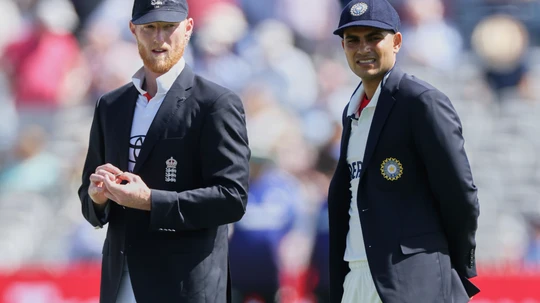While the Lord’s Test between India and England was one of the finest ever red-ball international matches in recent times and saw some top quality cricket in action and a tense finish, which reaffirmed Test cricket’s beauty to the world, it was not short of controversy as players of both sides had animated exchanges with each other while the umpiring also came in question but it was the slow over rate that left fans across the globe annoyed.
On each of the five days, play had to be extended by an extra half hour on each day, but on no day were the full 90 overs bowled. Infact, apart from the first day (83 overs), no other day even saw 80 overs being bowled.
Across the five days and four innings, the match, which ended in the final session on the fifth day, saw 368.1 overs being bowled, which meant the mark of 450 was missed by a significant margin.
India vs England – Overs Bowled On Each Day
| Day | Overs |
| 1 | 83 (All by India) |
| 2 | 72.2 (49 by England, 23.2 by India) |
| 3 | 77.2 (76.2 by England, 1 by India) |
| 4 | 78.5 (61.1 by India, 17.4 by England) |
| 5 | 57.1 (all by England) |
While the over rate by both teams was slow,it was just England punished as they were docked points in the 2025-27 World Test Championship (WTC) table as well as handed a 10% penalty on their match fee.
ICC’s decision sparked outrage with ex-England captain Michael Vaughan questioning the call.
“Let’s be honest both teams over rates at Lords were very very poor .. How only 1 team has been reprimanded is beyond me ..,” said Vaughan on X.
Why India Were Not Penalised By ICC
As per a report by the BBC, the ICC match referee punished England for the slow over rate on Day 2 when just 72.3 overs were bowled and England were found short by two overs short of their target.
It is worth noting that the ICC’s code of conduct for minimum over rate does allow a lot of allowances. In Test cricket, teams are only punished if an innings lasts longer than 80 overs. Hence, the second innings of both teams at Lord’s did not come into review.
There are other provisions that are taken into account, which ensure that teams are punished for things out of their control (listed below).
“In calculating the actual over rate for an International Match, allowances will be given for the actual
time lost as a result of any of the following:
2.2.1 treatment given to a Player by an authorised medical personnel on the field of play;
2.2.2 a Player being required to leave the field as a result of a serious injury;
2.2.3 all TV Umpire referrals and consultations;
2.2.4 time wasting by the batting side (which may, in addition, constitute a separate offence
pursuant to Article 2.20 depending upon the context and seriousness of the incident); and
2.2.5 all other circumstance that are beyond the control of the fielding team.
2.3 In addition, the following time allowances will be given:
2.3.1 in Test Matches (or other International Matches of at least four days in duration):
(a) 2 minutes per wicket taken, provided that such wicket results in the subsequent
batter immediately commencing his/her innings. For the avoidance of any doubt,
no time allowance will be given for the final wicket of an innings or where a wicket
falls immediately prior to any interval; and
(b) 4 minutes per drinks break taken (one per session),” the ICC Code Of Conduct states.
It is worth noting that play was stopped for a significant amount of time in the first innings due to an injury to Rishabh Pant as well as the need to change the ball frequently which was losing shape.
